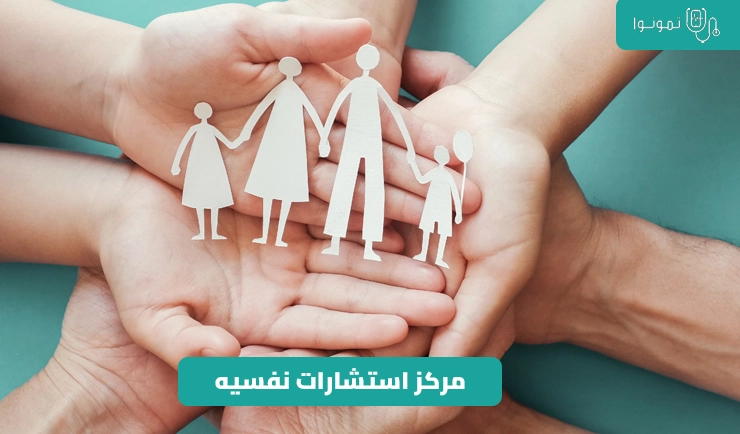Social Phobia | Causes of Social Phobia and How to Treat It

Have you ever wondered about the causes of social phobia and how it affects our daily lives? Social phobia may be one of the most disturbing psychological disorders for many, but at the same time it can be overcome by understanding its roots and dealing with its symptoms correctly. In this article, we will review together the causes that lead to this phobia, and how to recognize its symptoms and deal with them. If you are looking for effective solutions to overcome the causes of social phobia, get ready to embark on a journey to a deeper understanding of this problem and how to treat and confront a psychological disorder.
After that, we will review social phobia, the causes of social phobia, the symptoms of social phobia, and tips for dealing with the causes of social phobia.
Social phobia
Social phobia is a mental disorder in which a person feels intense fear and excessive anxiety in social situations. This feeling results from the fear of being evaluated by others or from the fear of being in an embarrassing or humiliating situation. Sometimes, this fear can be so intense that it greatly affects a person’s daily life, to the point of abstaining from social or professional activities such as going to work or school.
Currently, social phobia is considered part of social anxiety disorder, a newly classified type of anxiety disorder. Individuals with this disorder experience anxiety and dread of social situations that may be considered simple by others, such as meeting new people or speaking in front of an audience. However, this fear does not stop at big situations only, but can also include everyday situations such as waiting in public places or interacting with vendors while shopping.
People with social phobia feel that their fear is irrational or exaggerated, but despite their awareness of this reality, they are unable to control or overcome it. This feeling of anxiety can lead to constant avoidance of social situations, which negatively affects their personal and professional lives.
Causes of Social Phobia
Social phobia is a psychological condition characterized by excessive fear of social situations, where a person suffers from anxiety and tension when faced with social challenges or is exposed to situations that require interaction with others. Although the specific cause of this disorder has not yet been precisely determined, scientists believe that a combination of genetic, biological, and environmental factors contribute to its occurrence.
Genetic factors
Studies indicate that genes may play an important role in the development of social phobia. If a family member suffers from this disorder, the person may be more susceptible to it. Evidence suggests that genes responsible for controlling some biological processes may be linked to an increased risk of developing social phobia.
Neurotransmitter imbalance
Scientists believe that an imbalance in neurotransmitters in the brain may be one of the causes of social phobia. These neurotransmitters, such as serotonin, dopamine, and glutamate, play a major role in regulating mood and interaction with social situations. Any imbalance in the levels of these chemicals may lead to a weakened ability to deal with social situations and an increase in feelings of anxiety and tension.
Amygdala Overactivity
The amygdala is an area of the brain responsible for processing emotions and emotional responses, especially those related to fear. In people with social phobia, there may be hyperactivity in the amygdala, leading to an exaggerated response to fear and anxiety in normal social situations. This response may make the person feel excessively tense and fearful in situations that do not pose a real threat.
Environmental factors
In addition to genetic and biological factors, environmental factors play a major role in increasing the likelihood of developing social phobia. The most prominent of these factors are:
Exposure to traumatic events: such as the death of a loved one or being abused or assaulted. These painful experiences may lead to an accumulation of feelings of anxiety and fear that can affect mental health and increase the likelihood of developing social phobia.
Bullying and social humiliation: Being bullied or humiliated in front of others in childhood or adolescence may lead to the development of feelings of helplessness and lack of self-confidence, which increases the feeling of fear in social situations.
Family problems: An unstable family environment or suffering from problems within the family may contribute to increased stress and anxiety in a person, which creates the conditions for the development of social phobia.
Exposure to chronic illness: Suffering from a long-term or chronic illness may lead to social isolation and exacerbate feelings of insecurity and tension in social interactions.
Overprotective parenting style: Parents who overprotect their children or follow a controlling style may contribute to the development of social phobia in a child. This type of parenting can limit the child's ability to interact with the outside world in a normal way and increase their sensitivity to social situations.
Shyness education: Children who are accustomed to shyness or withdrawal from social situations during their childhood are more likely to develop social phobia later in life.
Thus, through these multiple factors, it becomes clear that the causes of social phobia are a complex disorder resulting from the interaction of several aspects of genetic, biological, and environmental factors that affect the individual and his psychological development.
Symptoms of Social Phobia
Social phobia is a psychological disorder in which a person feels excessive fear and anxiety towards social situations. Its symptoms can appear in different social situations, and may start before or even after the social event ends, and range between psychological, behavioral and physical symptoms.
Psychological and behavioral symptoms of social phobia
Tension and dread: A person with social phobia suffers from severe tension and fear of meeting or interacting with strangers, and may find it difficult to talk to them.
Extreme caution: A person feels constant fear of being embarrassed or criticized, which makes this one of the causes of social phobia and avoids interacting or presenting himself in social situations.
Fear of being noticed: A person with social phobia feels afraid that others will notice his tension and anxiety.
Shyness and embarrassment: The person suffers from a severe feeling of shyness and embarrassment in front of others, even in simple daily situations.
Fear of judgment by others: A person fears that others will judge him, which contributes to exacerbating feelings of anxiety.
Tension before the event: A person may suffer from feelings of anxiety and fear for days or weeks before any social event.
Avoiding social situations: The affected person prefers to avoid social situations or any situations that may cause anxiety and fear.
Difficulty in building relationships: The affected person has difficulty establishing or maintaining social relationships and friendships.
Stuttering and difficulty in eye contact: Stuttering may appear in speech or difficulty in maintaining eye contact with others.
Panic attacks: Some individuals suffer from severe panic attacks while in social situations.
Low self-confidence: The person suffers from low self-confidence and feels constant blame towards himself, which is one of the causes of social phobia.
Physical symptoms of social phobia
Blushing: Anxiety causes the face to turn red due to blood flow.
Excessive sweating: The person with social phobia suffers from excessive sweating due to tension.
Tremors: The person may feel tremors in his hands or body as a result of anxiety.
Rapid heartbeat: The person suffers from an acceleration in his heartbeat as a result of tense feelings.
Feeling nauseous: Some individuals feel nauseous or have an upset stomach during social situations.
Dizziness and vertigo: Some people feel dizzy as a result of psychological stress.
Difficulty speaking: The person has difficulty speaking or stuttering during conversations.
Confusion and difficulty concentrating: The person has difficulty concentrating or making decisions due to excessive anxiety.
Symptoms of social phobia in children
Social phobia in children can appear in the form of different social reactions, such as:
Excessive crying: in social situations that cause them anxiety.
Tantrums: They show severe emotions such as anger when interacting with others.
Clinging to parents: Children refuse to be separated from their parents in social situations.
Freezing: The child may freeze in place and cannot interact.
Avoidance of speaking: The child avoids speaking in different social situations.
Causes of Sudden Social Phobia
Social phobia may be sudden due to a person being exposed to painful or frustrating situations in the past, such as being ridiculed or publicly criticized, or due to previous experiences that led to strengthening feelings of fear and tension. Genetic factors and the surrounding environment may contribute to the development of this disorder.
Social phobia test
A person can take a simple test to determine if he suffers from social phobia, such as assessing the level of stress and anxiety in certain social situations, and if the symptoms affect daily life, it may be necessary to consult a specialist.
Symptoms of mild social phobia
In mild cases, a person may suffer from non-excessive stress, but may find it difficult to interact with others or may avoid some simple social situations, without these symptoms significantly affecting his daily life.
Is social phobia a mental illness
Yes, social phobia is considered a mental disorder that affects a person's ability to interact socially normally. This disorder can be temporary or chronic, and needs treatment to reduce its impact on daily life.
Causes of Social Phobia
Social phobia may arise as a result of several reasons, including genetic factors, home upbringing, painful or negative experiences in previous social situations, or exposure to psychological stress and ongoing anxiety.
Symptoms of Social Phobia
Symptoms of social phobia vary between individuals, but they are similar in feeling fear, tension, and anxiety in social situations, in addition to the physical and psychological symptoms mentioned above.
Causes of Social Anxiety
Social anxiety occurs due to a group of factors such as fear of criticism or social rejection, previous painful experiences, or feelings of insecurity about oneself in social contexts.
Thus, the causes of social phobia can appear in many forms, and its symptoms vary according to each individual case, and dealing with it may require specialized treatment strategies to ensure symptom relief and better adaptation to social situations.
Tips for dealing with the causes of social phobia
Here are some tips from a psychologist that can help deal with the causes of social phobia and alleviate its symptoms in more detail:
Practicing relaxation exercises regularly
Relaxation exercises such as yoga, deep breathing, and guided imagery help reduce anxiety and stress levels, which contributes to calming the mind and body. These exercises can be practiced at the beginning of the day or before facing difficult social situations, to renew mental and physical energy.
Dividing difficult situations into small steps
Sometimes, complex social situations can be a source of anxiety. Therefore, it is useful to divide these situations into small parts that can be dealt with gradually. For example, if you feel nervous when speaking in large gatherings, try starting with smaller situations such as talking to one person or interacting in small groups.
Changing negative thinking patterns
Social phobia reinforces negative thoughts such as I will be the center of attention or I will make a mistake. These thoughts can be confronted by challenging them and replacing them with positive thinking. For example, replace the thought “I will forget what I want to say” with the thought “I will have time to think about my speech while listening to others.”
Reduce stimulants
Caffeine and other stimulants can increase anxiety and stress. Try to reduce or avoid drinking caffeinated beverages such as coffee and black tea, especially when there are upcoming social situations.
Regulate your sleep time
Getting enough sleep is essential to improving your ability to cope with anxiety on a daily basis. Try to establish a regular sleep routine that helps you relax and mentally rejuvenate, such as avoiding screens before bed and reading a quiet book.
Exercise and eat a healthy diet
Exercise is one of the best ways to relieve stress, as it promotes the release of happy hormones such as endorphins. Eating a balanced diet also helps to improve overall mental health.
Educate yourself about social anxiety disorder
Reading and information can help you understand the causes of social anxiety and motivate you to find better solutions. You may feel relieved after knowing that there are many people who face this problem, which may reduce the feeling of isolation.
Join a support group
Groups that bring people together can be Those who suffer from the same problem are an important source of support. In these groups, you can talk freely with others, exchange experiences and advice on how to deal with social situations.
Therefore, by following these guidelines regularly, you can also get psychological counseling by communicating with tmoono, the best psychological counseling center, you can improve your psychological state and reduce the impact of social phobia on your daily life.
Frequently asked questions about the causes of social phobia
How does a social phobia patient think?
A social phobia patient thinks about fear of negative judgment and rejection in social situations.
Is social phobia a psychological or mental illness?
Social phobia is a psychological disorder that affects social interaction and dealing with social situations.
Does social phobia indicate a weak personality?
Social phobia does not indicate a weak personality, but rather a psychological disorder that can be treated with treatment and support.
How do I know that I suffer from a phobia?
You suffer from a phobia if you feel extreme fear and tension in social situations or in front of others.
You can learn more about the most important valuable medical information and distinctive articles only through the blog of our website tmoono. Do you know the causes of social phobia? This condition affects many in their daily lives. From low self-confidence to previous negative experiences, the factors can be multiple. Understanding these causes is the first step towards overcoming them. Explore treatment methods and get rid of these psychological obstacles now!










